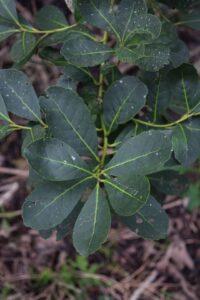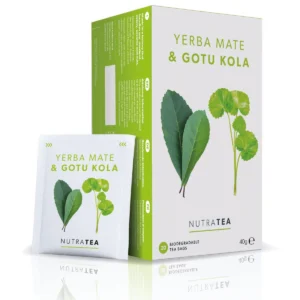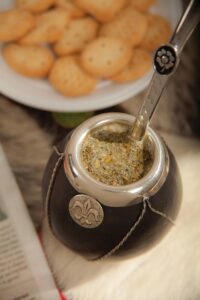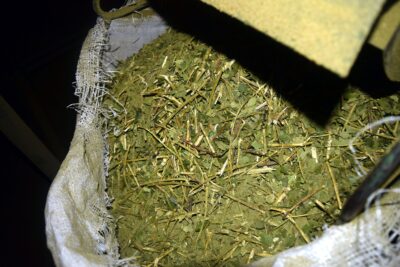Energy and Weight Loss with Yerba Mate
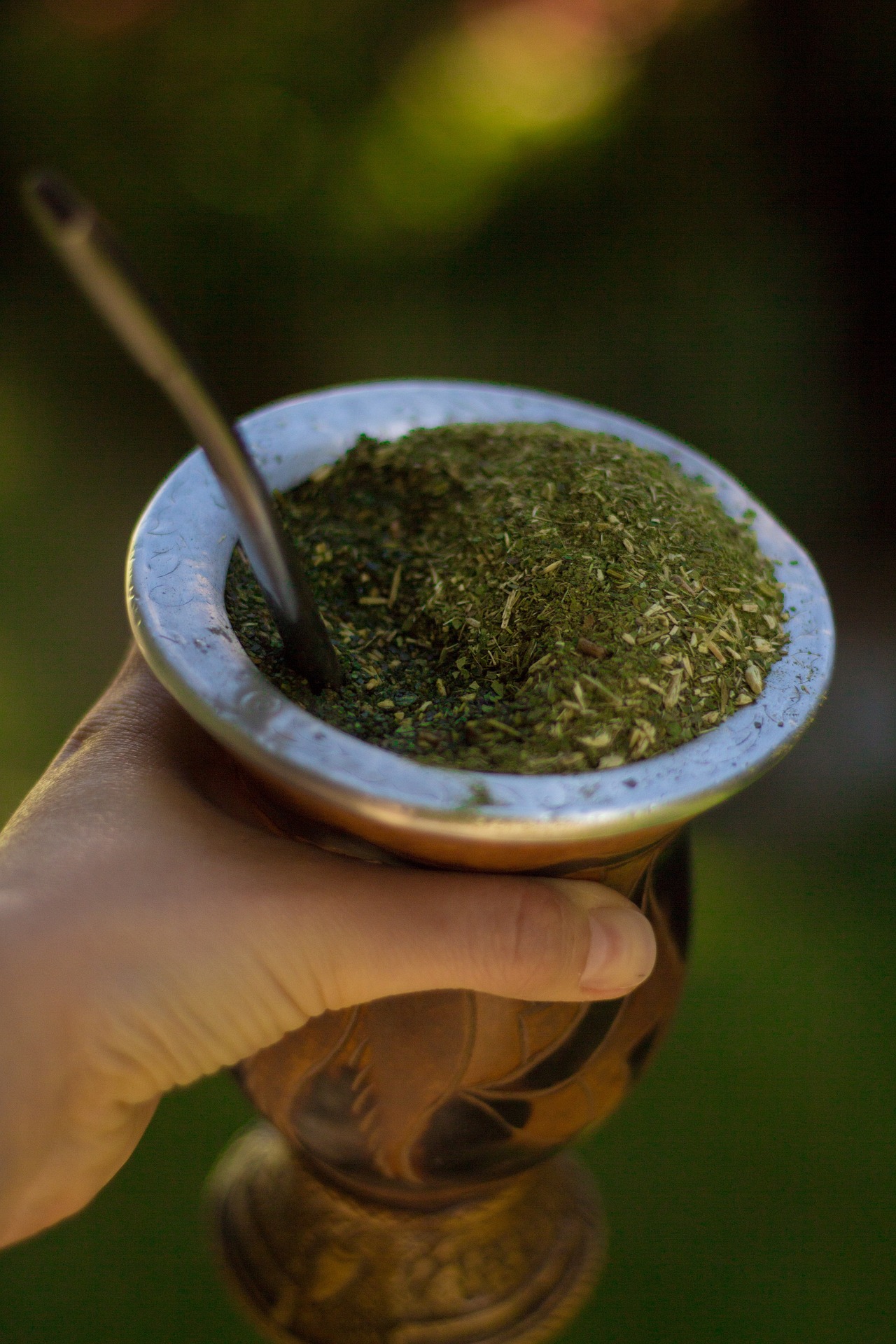
Yerba Mate is South America’s best-kept secret tea for energy and weight loss. The dried leaves and stems of the Ilex paraguariensis plant (the “yerba” meaning “herb” in Spanish) are soaked in hot water, often multiple times. A cup (“mate”) of Yerba Mate contains roughly the same caffeine as a cup of coffee. However, Yerba Mate brings energy and alertness without coffee’s jittery side effects. The tea promotes weight loss by decreasing the body’s total number of fat cells and enhancing athletic performance. Yerba Mate protects heart health, fights inflammation, and has antibacterial activity.
NutraTea herbalists created the Yerba Mate and Gotu Kola blend as an invigorating, strengthening tea that supports cognition and healthy weight management. It’s an ideal way to start the day or fight post-lunch sleepiness! Enjoy in moderation (up to two or three cups a day) and drink it warm, not hot.
Yerba Mate contains:
- Saponins
- Xanthines
- Polyphenols
- Caffeoyl derivatives
- Vitamins A, E, C, and B6
- Thiamine
- Riboflavin
Energy and Focus
Yerba Mate’s energy-boosting property comes from its stimulating xanthines. This includes caffeine, theobromine, and theophylline. All three act on the central nervous system and cardiovascular system, blocking adenosine receptors, which normally promote relaxation and sleepiness, and by increasing the levels of certain neurotransmitters like dopamine and norepinephrine, which are associated with alertness and cognitive function.
Weight Loss
Thanks to its caffeine content (about 80 milligrams per cup), Yerba Mate temporarily suppresses hunger. It also supports healthy digestion thanks to bitter properties that stimulate bile production and gastric acid secretion. This helps the body break down food, particularly fats.
Heart health
Yerba Mate can reduce blood pressure thanks to its bitter saponin compounds. It reduces blood viscosity and reduces the risk of cardiovascular disease overall. Yerba Mate also lowers high total and LDL cholesterol (hyperlipidemia) by reducing lipid peroxidation, improving endothelial function and LPL and HL activities, and modulating the expression levels of genes involved in lipid oxidation and lipogenesis.
Anti-inflammatory and Antibacterial
This amazing tea is anti-inflammatory due to its phenolic antioxidants, saponins, and caffeoyl derivatives. These healthy antioxidants all reduce the risk of many chronic diseases and discomfort. Yerba Mate is also antibacterial against the pathogenic bacteria Escherichia coli and Staphylococcus aureus. Its natural antimicrobial properties can prevent bacterial stomach infections.
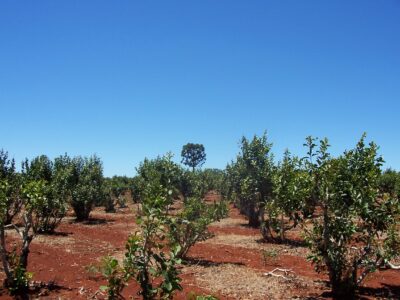
Traditional Yerba Mate
People call this incredible tea Yerba (“herb” in Spanish”), Mate, or Yerba Mate. Blends like Yerba Mate and Gotu Kola make it easy to enjoy Yerba Mate without the hassle of traditional preparation. Still, tradition is fun and interesting! Traditionally, people serve Yerba Mate in a cup made of a gourd, wood, or bone, called a “mate” (pronounced mah-tay), with a filtered, steel straw, called a “bombilla” (pronounced bomb-bee-yuh).
There is a strong etiquette to the intimate social ritual in which people share a single Yerba Mate in a circle. A “cebedor” (masculine) or cebedora” (feminine) prepares and serves the tea. Each person in the circle drinks the Mate fully without moving the bombilla, and passes it back to the cebedora for it to be refilled and handed to the next person. One only says “thank you” when one doesn’t want to be served again. It’s equally common to enjoy Yerba Mate by oneself.
Today, primarily people living in Paraguay, Uruguay, Argentina, and Southern Brazil anjoy Yerba Mate daily. The tea was originally exclusively used by the indigenous Guaraní and Tupi tribes of Paraguay. Yerba Mate comes from the leaves and stems of an evergreen shrub tree. Some people call the caffeine in the tree’s leaves mateine. The strength of the flavor, caffeine content, and nutrient composition varies depending on whether it is a male or female plant. Female plants tend to be milder in flavor and lower in caffeine.
